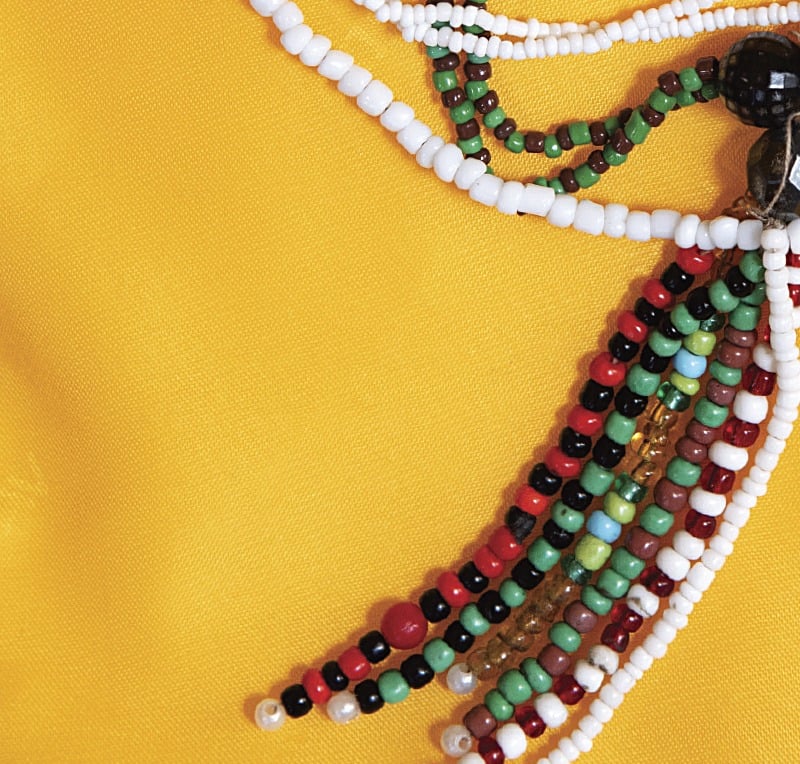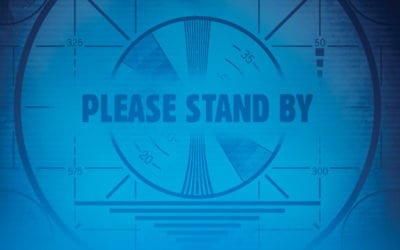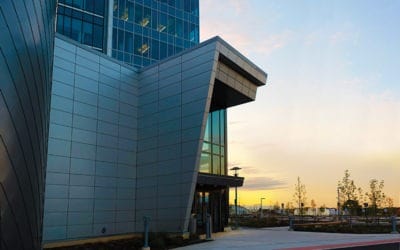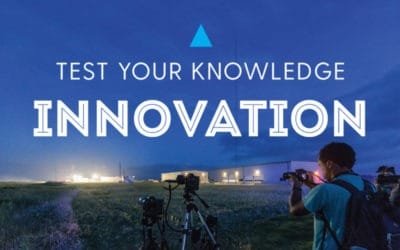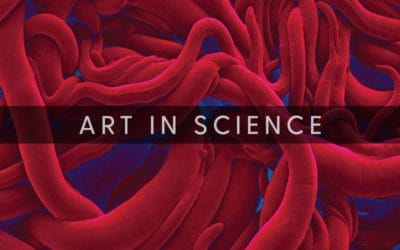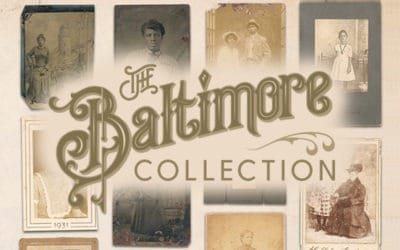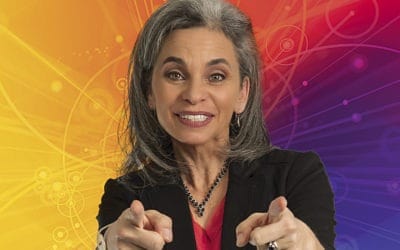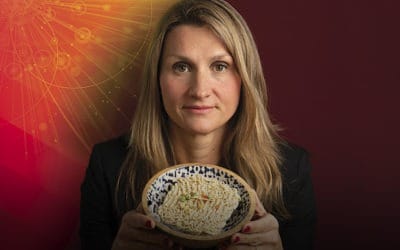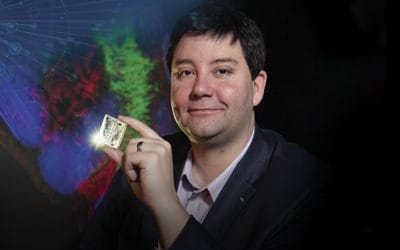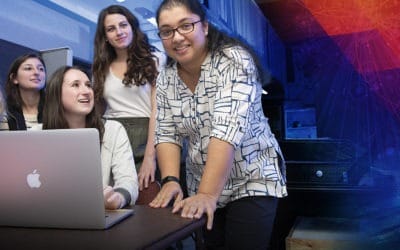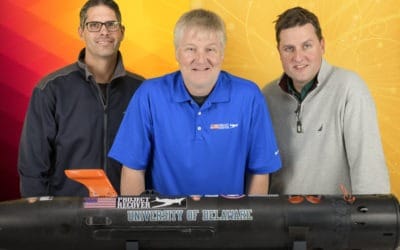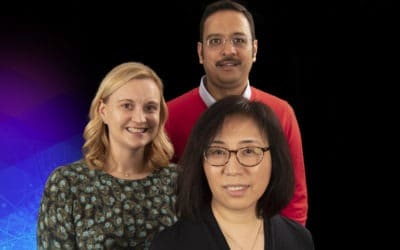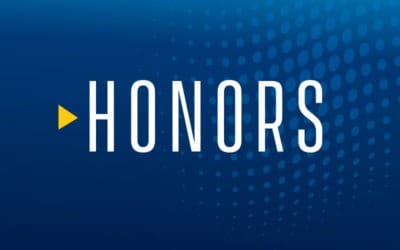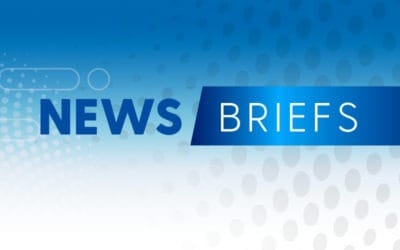
DISRUPTORS
MAKING OUR WAY
Society often remains silent about mental illness, sexual and domestic violence despite the millions affected—half of all Americans will be diagnosed with a mental disorder alone at some point, according to the Centers for Disease Control and Prevention. In her work as an award-winning scholar, author and minister, Monica A. Coleman shares both her expertise and her own struggles, offering a powerful new vision for healing through faith.
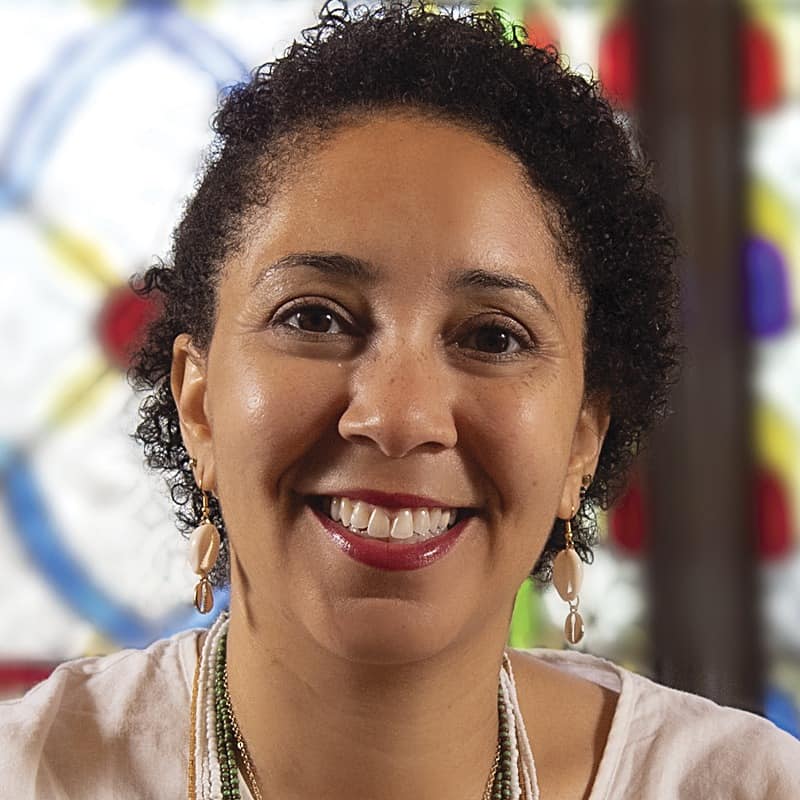
Monica A. Coleman
Africana Studies
MEET MONICA
Professor of Africana studies at the University of Delaware and an ordained elder in the African Methodist Episcopal Church, Monica A. Coleman focuses on the role of faith in addressing critical social and philosophical issues. She believes spiritual activism leads to social activism and shares principles for growth and liberation to help change the world to be a more just place. She is a Harvard graduate and holds a master of divinity degree from Vanderbilt and master’s and doctoral degrees from Claremont Graduate University. Her books are required reading at leading theological schools across the U.S.
Question:
What do you study, and what led you into this field?
Answer:
I study the ways that religious beliefs address suffering and injustice. When preparing for a career in Christian ministry, I discovered the academic study of theology and fell in love with the different ways people have thought about God over time—even within one religion. I found this diversity very liberating and wanted to share it with others. As a womanist theologian, I write and speak about what happens when one places black women’s spirituality at the center of our discussions about faith. As a philosophical theologian, I study people’s religious beliefs within the framework of what we think about how the world works. I do this to offer an alternate vision for hope and healing.
Question:
Can you recount the tipping point—the idea that produced your ‘aha!’ moment?
Answer:
When I was in college, I took an elective in Harlem Renaissance literature in the African American studies depart- ment. I loved the class and changed my major to African American studies (what UD calls Africana studies). I had long been interested in black religions, African American literature and black history, but I didn’t know I could major in something I studied for fun.
As a second tipping point, when I was 18, other students from my college and I went to South Africa to help prepare voters for the first free democratic elections in that country—the elections that voted Nelson Mandela as president. That experience concretized my sense of the global African diaspora and ignited my passion for connecting academic knowledge with grassroots activism.
Question:
Were there many naysayers and how did you navigate that?
Answer:
Yes. My parents didn’t understand what I was doing. They thought “studying black people” wouldn’t get me “a real job.” Likewise, I wasn’t raised to be a religious leader. That wasn’t an option given to girls at the time and place where I grew up. So there was a lot of ageism, sexism and misunderstanding around my career choices. I kept telling them I would teach. When I received support from the Andrew W. Mellon Foundation (Mellon Mays Undergraduate Fellowship), the Ford Foundation (Ford Diversity Fellowship) and the Woodrow Wilson National Fellowship Foundation, that helped me—and so many other people of color—to grow in my career and for my parents to see that it was a viable career option.
Question:
Did anyone in particular inspire you to think differently?
Answer:
I had a lot of excellent role models and mentors. I’m afraid to name one for fear of missing some: Henry Louis Gates Jr., Evelyn Brooks Higginbotham, Renita Weems, Marjorie Suchocki, Angela Y. Davis, J. Lorand Matory, Delores S. Williams. They all showed me a way to think critically as a scholar, how to genuinely care about my students’ intellectual and personal growth, and how to take our academic knowledge and share it with a wider public—through writing, preaching, public speaking, visual media. This was what I wanted to do and they showed me that it could be done and personally validated this approach to being an academic.
Question:
What is your favorite problem at the moment?
Answer:
I’m thinking about loss. Human finitude is a long-time philosophical problem, and I’m thinking about strategies for how we navigate myriads of small and significant losses in our daily lives, and the kinds of rituals and creative ways we can claim life in the midst of them. I’ve worked it out philosophically, and now I want to add a lived religion dimension to the way I write about it.
Question:
Does your disruptive side prove challenging at home?
Answer:
It’s the only way my family knows me.
Question:
Why do you want to keep doing this work?
Answer:
I really love what I do. I feel a vocational calling to this work. I like thinking about the big questions of faith and offering various ways to think about it, and sharing that with a wider public. I believe rituals are not only endemic to human societies, but critical for our creative engagement with the world. When people tell me—even through DMs on Instagram—that something I’ve said or written makes a difference for them, then I have a lot of energy to keep going.
MORE STORIES
From the Vice President for Research, Scholarship and Innovation
A disruptor prevents things from proceeding as usual. But that’s not always bad. In research and education, we’re always turning ideas and methods on their ear in the quest to learn something new…
Innovation In Motion
UD researchers partner with Reebok to build a “smart” sports bra — a sports bra engineered to actually do its job!
Disruptors
This issue of the University of Delaware Research magazine puts new faces on this idea of disruption, highlighting the innovative way our researchers are tackling complex problems. Learn about their work and what drives them and how the disruption they cause can produce real benefit for our world.
Bright Star
UD’s Science, Technology and Advanced Research (STAR) Campus is shining ever brighter with the nationally recognized Tower at STAR.
Test Your Knowledge: Innovation
As a growing research institution, the University of Delaware is a place where you’ll find new ideas constantly sparking solutions to challenges once deemed impossible.The wonder of innovation is all around us, but what do you really know about it? Try your hand at these questions.
Art In Science
Now in its fourth year, this annual exhibit offers a captivating glimpse into a vast world of discovery at the University of Delaware.
The Baltimore Collection
Something truly special emerged from a box that no one expected until Julie McGee, associate professor of Africana Studies and Art History, and her University of Delaware students got their hands on the 53 photographs inside.
Disruptors: Probing the Power of Paradox
A professor of management at UD’s Lerner College of Business and Economics, Wendy Smith focuses on how leaders and teams can effectively respond to contradictory agendas.
Disruptors: Defending Equal Access to Food
How does a new supermarket impact people who live nearby? Can healthy options be found in the little store down the street? These are questions that Allison Karpyn ponders regularly.
Disruptors: Cracking a Cell’s Secret Code
Jason Gleghorn has held a variety of jobs since college—teacher, firefighter, medic, engineer. Today, he’s an interpreter of sorts, too, deciphering the language that cells use to communicate in hopes of advancing new treatments for congenital birth defects, pediatric diseases and more.
Disruptors: Moving Forward with Autism
With skills in physical therapy, behavioral neuroscience and biomechanics, Anjana Bhat brings expansive expertise to her work developing creative therapies for those living with autism spectrum disorders.
Disruptors: Expanding Our World View
These co-founders of the Robotic Discovery Laboratories in UD’s College of Earth, Ocean and Environment manage a growing robotics fleet for use on land, in air and under the sea. They explore questions along the coast, at the poles and in deep regions of the ocean.
Disruptors: Harnessing Beneficial Microbes
So, what do a virologist, botanist and soil physicist have in common? This team from UD’s College of Agriculture and Natural Resources is leveraging their collective expertise to ensure that our food supply is safe and abundant, now and in the future.
Honors
UD researchers have been recognized recently by the National Institutes of Health, American Political Science Association, TED Fellows program, National Science Foundation, National Academy of Inventors and the Gates Cambridge Scholarship program.
News Briefs
Check out some recent developments, from the launching of major research programs to address environmental and health issues in the First State, to the preservation of a pair of 1909 mittens with a hallowed history.
CONTACT
Tracey Bryant
Senior Director, Research Communications
Email: tbryant@UDel.Edu
SUBSCRIBE & CONNECT
The University of Delaware Research magazine showcases the discoveries, inventions and excellence of UD’s faculty, staff and students. Sign up for a free subscription.



